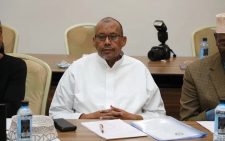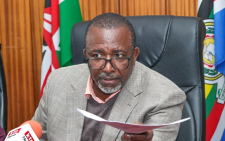Employment authority must guard migrant labour

There is an argument that an institution is as effective as its leadership. That is why organisations, especially in private business hire the best talent to drive visions, harness potential and deliver on their goals.
The same cannot be said of the behemoth that is called government. While experts run the bureaucracy, their leadership is largely by politicos or their appointees on considerations that are wont to, understandably, overshadow meritocracy.
But the quality of political appointees help underline the appreciation of the leadership on the strategic importance, or lack thereof, it attaches to state institutions.
Recall the uproar that greeted the appointment of former Othaya MP Mary Wambui as chair of the National Employment Authority board.
It took intervention of the High Court which nullified the appointment, saying the good lady was not qualified for the job. The relevant law provided that the person to be appointed chairperson should have at least seven years’ experience in human resource management or its equivalent. Granted, given Kenya’s vast human resource reservoir, not all of us can secure job opportunities in government or private sector.
The Labour ministry says while nearly 1.2 million Kenyans join the job market yearly, the formal and informal sectors have the capacity to absorb only 800,000 annually.
That is why the country must have a sober conversation on the social and economic benefits of labour mobility and attendant inertia by relevant government agencies, notably the Employment Authority.
Last month President William Ruto revealed that Kenya receives Sh400 billion from diaspora remittances, more than it earns from tea, coffee or horticulture exports.
The President also announced that Kenya had signed ten new bilateral labour agreements that will enable it send workers to European, North American and Middle Eastern countries. Besides the riveting story of the transformation effect of remittances to recipient families and economies, the other side has been gory. The exploitation of Kenyan domestic workers in the Gulf largely because of weak protective mechanisms in the labour agreements is a raw wound. Kenyans have been watching chilling accounts of torture, slavery, infringement of migrants’ rights, forced returns and restriction of movement in the receiving countries. The suggestion that government has set up a distress call centre for workers whose movement is restricted by foreign employers borders on malarkey. You would not need such and the so-called safe houses had you not gleefully signed agreements that have loopholes for exploitative, detention and unethical labour practices. Many families are struggling to repatriate their relatives stuck abroad in painful circumstances.
A report by the International Organisation for Migration (IOM) released last month pointed out that the process of removing detained migrants can be complex and dehumanising due to lack of agreements between countries to facilitate swift returns in a dignified manner. This raises the enduring question on the integrity of recruitment process. It is a well-known fact that the desperate, poor, uneducated, vulnerable and naïve workers being sent to the Gulf are being recruited by backstreet agencies which dump them at the airport and switch off their phones. The migrants are then left to their own devices.
The most disturbing has been either the incompetence, lethargy or connivance of the National Employment Authority that is mandated to regulate the sector. A senate committee was this week shocked with revelations that 401 employment agencies are operating without licences.
Of course, they are either owned or protected by individuals in high places. The authority has turned itself into a toothless bull dog only barking at the rogue agencies. The organisation a new director general this week. We hope the new leadership will rise to the occasion and protect Kenyan migrant workers.
— The writer is the Political Editor at People Daily












